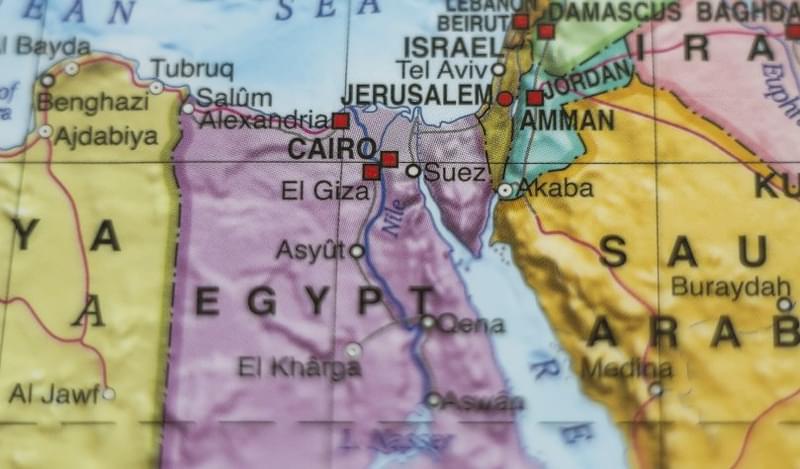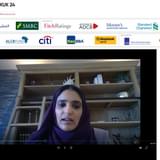After a tumultuous period, where years of political instability were followed by an economic recession, collapse of key industries, and surging inflation, Egypt may finally see calmer waters in 2017.
The landmark decision by the Central Bank to freely float the currency last November, along with a series of painful yet necessary economic reforms passed by the government, allowed Cairo to achieve its key short-term goal of securing the US$12bn loan from the IMF. This achievement, according to many observers, could finally unlock the foreign investment required to revive the ailing economy.
“We have seen increases in administered fuel prices and a new bankruptcy law. The devaluation happened in the context of broader economic reform, including restraint on public sector wage growth,” noted Simon Kitchen, Head of Macro-Strategy at EFG-Hermes.
“In terms of recent achievements, the currency flotation has been the biggest theme,” said Capital Economics’ Middle East economist Jason Tuvey. “In the past, several different administrations were reluctant to let the pound go, but this government finally bit the bullet.”
Tuvey highlighted other positive steps taken by the government, such as the fuel subsidy cuts and the introduction of VAT. According to the analyst, more measures are needed to address the swelling budget deficit.
“There is a bill in parliament at the moment that aims to reduce the public-sector weight. This is a key area where progress is needed. The business environment needs to improve, with Egypt still one of the poorest countries in the region – there is another bill in parliament relating to this issue. With the IMF on board, we expect to see more progress in the next couple of years.”
In December inflation hit an eight-year high at 23.3%, with core inflation reaching 25.9% in urban areas, according to the state agency CAPMAS.
Much of that rise is attributed to the continually dropping Egyptian pound, which failed to appreciate after the initial drop, as many had hoped, hovering around the 19 per US dollar mark for the past two months (analysts expected it to appreciate to around 14-15 per US dollar after the floatation).
“The big story over the past couple of months in Egypt is the rise in inflation, which reflected the drop in the pound since the flotation as well as the subsidy cuts, introduction of VAT etc,” noted Tuvey.
According to the economist, although a jump in inflation was inevitable post-flotation, its severity has taken some by surprise.
“This is also due to the currency failing to bounce back after overshooting, contrary to market expectations. It all points to the Central Bank hiking rates sooner rather than later,” he said.
“In the short term, we will see inflation continue to rise,” said Garbis Iradian, chief economist at the Washington-based Institute of International Finance. “But the difficult steps, for instance the flotation and some of the reforms, have already been taken, so I expect to see improvements as soon as Q2 this year.”
Another positive element of the flotation, though it may be small consolation to Egyptians at this stage, is the government’s refusal to intervene, which in the long run will boost investor confidence in the current administration.
“FX infusions would quickly come to light and would undermine their promise to let the currency float, raising concerns that they are reverting back to their old ways,” Tuvey noted.
The floating pound helped ease pressure on Egyptian exporters and, with the IMF tranche, the hard currency shortages seen in the first half of last year have been less severe. FX reserves rose from US$23.06bn to US$24.27bn in December, according to the Central Bank.
While both domestic debt (up by 5.3% in q1 2016/17) and external debt (US$60.2bn in September, compared to US55.8bn in July) both increased, Egypt's budget deficit in the first half of 2016/17 narrowed to 5% from 6.3% in the same period a year earlier. With the budget deficit dropping slowly but steadily since 13.7% peak seen in 2013, it raised hopes of achieving the government target of 9.8% end of 2017.
“A lot of the foreign debt is concessionary, so the level of debt is not a huge risk,” explained Kitchen. “FX reserves are rising, and the size of the devaluation will help to rebalance the economy. The deficit is very high, but recent policy changes should put it on a long-term downtrend.”
Optimism Persists
Tuvey is also cautiously optimistic: “FX reserves have risen mainly due to financing by the IMF and other international partners. But we’ve also seen foreign investors start to flock back to Egypt, particularly in the equity market.”
Indeed, foreign investment – the cornerstone of Egypt’s economic recovery plan – is slowly returning, with Russian oil giant Rosneft snapping up as much as 35% of a natural-gas project off the coast of Egypt for US$1.13bn last December.
The Egyptian Electricity Holding Company (EEHC) recently secured a US$650mn loan to develop the Assiut and West Damietta combined cycle power plants in Egypt, with BNP Paribas acting as organizer, and Crédit Agricole, Crédit Industriel et Commercial and ING Bank as mandated lead arrangers.
The thawing of its relationship with Russia, damaged by the fatal crash of a Russian passenger plane last year, would give a huge boost to Egypt’s tourism industry, highly dependent on Russian visitors.
And, with the IMF loan in the bag and the pound stabilising, the government is now eying a return to the international debt markets, with a sovereign bond sale set to take place later this month. Egypt will begin testing appetite for its debt with a Dubai roadshow on January 17, looking to raise up to US$6bn from Eurobond sales in 2017.
According to Egypt’s finance minister Amr El-Garhy, four international investment banks— Natixis, Citi, JP Morgan and BNP Paribas – were mandated for the bond, which could provide a yield of around 6-6.5%. It is already causing a flurry of interest.
“The Eurobond should see decent interest given recent reforms and the IMF programme. Interest in EGP Treasury bills is also picking up,” Kitchen said.
“There has been some interest in the Egyptian bond – the weaker pound in that regard had the desired effect. I think there will be more appetite in Egyptian debt than we have seen in the past few years, particularly with the IMF backing for government reforms, such as the subsidy cuts,” commented Tuvey.
“I speak to a lot of investors who will give them a thumbs-up at the issuance,” the expert added.
“Following the upcoming issuance, I expect Egypt to tap the markets again this year,” commented Iradian. “In terms of investor base, I expect to see the familiar faces – like Middle Eastern neighbours Saudi Arabia, UAE, as well as perhaps some of the G7 countries.”
A Long Path Ahead
While these first steps are encouraging, they only mark the beginning of a long and arduous journey for Egypt, with many further reforms required to consolidate this progress.
Structural reforms are needed to reduce surging unemployment, cut the bloated public sector to establish a private-sector led economy, as well as an overhaul of laws and regulations to liberalise labour markets and attract foreign capital.
Egypt’s last foray into the international bond market in 2013 was conducted, more or less, in the context of a power vacuum; this time around the situation is quite different, says Tuvey.
“Now the government is certainly more secure than it was in 2013, the aftermath of the second revolution. This time it has been in power for a few years, it is well-established. The political situation will be of concern to investors to a much lesser extent; what will interest them more is what steps this government is willing to take to fix the economy.”
International observers are, for now, quite upbeat about Egypt’s prospects; others are more cautious about the pace of Egypt’s recovery.
“In the past few months, the government tried to prepare the wider population for more pain; we expect growth to slow very sharply this year from the effects of a weaker pound,” warned Tuvey.
“Monetary and fiscal policies are likely to tighten too. This will bring much grief to the Egyptian people, but longer-term benefits from these reforms will start to filter through.”
If the Egyptian leadership stays true to its promise of opening up the economy, liberalising the business environment and continuing with the reforms, the public is bound to see those efforts bear fruit over the next twelve months.









